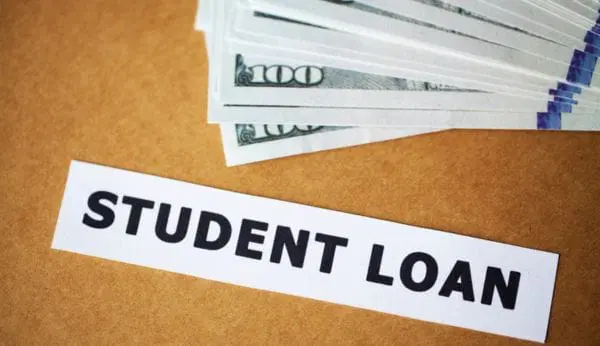In today’s financial landscape, your credit score plays a crucial role in securing loans, mortgages, and even getting the best rates on credit cards. If you’re looking to boost your credit score quickly, you’re in the right place! Whether you’re new to credit or trying to recover from past mistakes, improving your credit score is a process that requires strategic actions. In this guide, we’ll walk you through simple, effective ways to raise your credit score and secure better financial opportunities.
What is a Credit Score and Why Does it Matter?
In the United States, your credit score ranges from 300 to 850, and it’s a reflection of your financial behavior. Lenders, landlords, and even insurance companies use your credit score to assess your reliability. A higher score opens the door to better financial products and lower interest rates. Here’s why it matters:
- Lower Loan Interest Rates: A higher score means you qualify for lower interest rates on mortgages, car loans, and personal loans.
- Better Credit Card Offers: With a good credit score, you’ll have access to credit cards with higher limits, rewards, and lower APRs.
- Easier Approval for Renting or Jobs: Many landlords and employers check credit scores as part of their decision-making process.

How to Improve Your Credit Score Fast
Improving your credit score doesn’t happen overnight, but there are several proven ways to see results quickly. Here’s what you can do:
1. Check Your Credit Report for Errors
The first thing you should do is check your credit report. The three major credit bureaus—Equifax, Experian, and TransUnion—are required to provide you with a free credit report once a year. Review it for any errors such as outdated information, incorrect personal details, or debts that aren’t yours.
How to Fix It:
- Dispute any inaccuracies directly with the credit bureau.
- Gather proof (such as payment receipts) if you’ve paid off a debt that still appears as outstanding.
2. Pay Your Bills on Time
Your payment history makes up 35% of your credit score, so paying bills on time is the easiest way to see a noticeable improvement. Late payments, even by a few days, can lower your score significantly.
How to Stay on Track:
- Set up automatic payments for utilities, credit cards, and loans.
- Set up reminders or use budgeting apps to ensure timely payments.
- If you’re behind, catch up as quickly as possible to avoid further damage.
3. Reduce Your Credit Card Balances
Credit utilization is the second most important factor affecting your credit score, and it’s determined by how much of your available credit you’re using. A general rule of thumb is to keep your credit utilization below 30%. If your balances are higher, consider paying them down as quickly as possible.
How to Improve Your Utilization:
- Focus on paying down cards with the highest interest rates first.
- If possible, request a credit limit increase from your credit card issuers to help lower your utilization rate.
4. Don’t Apply for New Credit
Every time you apply for new credit, it generates a “hard inquiry,” which can temporarily lower your credit score. Avoid applying for new credit unless it’s absolutely necessary. Multiple inquiries within a short period may give the impression that you’re financially unstable, which can hurt your credit score.
What You Can Do:
- Only apply for new credit if you’re sure you’ll be approved.
- Space out your credit applications to avoid too many hard inquiries in a short time frame.
5. Consider Becoming an Authorized User
If you have a family member or friend with a good credit history, you can ask to be added as an authorized user on their credit card. This allows you to benefit from their positive payment history, which can help boost your score quickly.
How It Works:
- The primary cardholder’s good credit behavior will reflect positively on your credit report.
- Just make sure they maintain a low balance and pay their bills on time.
6. Get a Secured Credit Card
If your credit history is limited or damaged, a secured credit card is a great way to rebuild. With a secured card, you deposit money into a savings account, which acts as collateral for your credit limit. Responsible use of a secured card can help improve your credit score.
Tips for Using a Secured Credit Card:
- Make small purchases and pay the balance in full each month.
- Look for secured cards with no annual fees and low interest rates.
7. Try Credit Repair Services
If you’ve tried managing your credit on your own and need professional help, consider using a credit repair service. These companies are experts at negotiating with creditors, disputing errors, and removing negative items from your credit report.
How to Choose the Right Credit Repair Company:
- Look for companies with a solid reputation and positive reviews from customers.
- Be sure the company is registered with the Federal Trade Commission (FTC).
- Avoid companies that promise “guaranteed” results—they may not be legitimate.
How Long Will It Take to See Results?
Improving your credit score takes time, but some actions can lead to quick improvements. For example, disputing errors on your credit report or paying down high-interest credit card balances can show results in just a few months. However, rebuilding credit after major issues like bankruptcy or foreclosure may take longer.
Final Thoughts
Improving your credit score is a journey that requires patience and commitment, but it’s a key step toward securing better financial opportunities. By following the strategies outlined in this guide—checking your credit report for errors, paying off debt, and using professional services when needed—you can see meaningful improvements in your score.
Sources:
- Experian
- NerdWallet
- Investopedia



